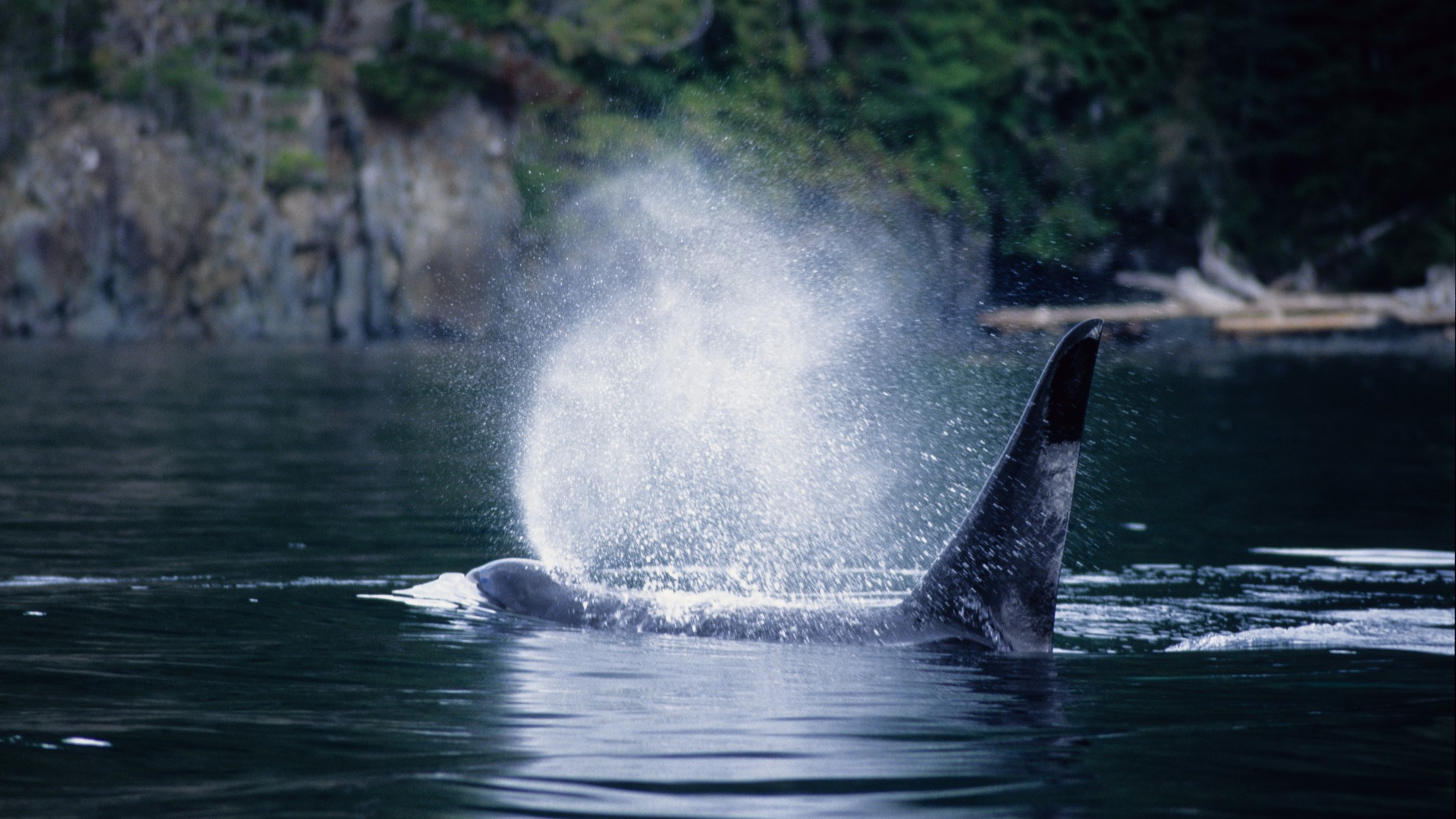
A young orca is refusing to return to the open ocean after its pregnant mother became stranded and died in a lagoon off Vancouver Island in Canada, rescuers say.
The mother and calf entered the lagoon, which extends south of the village of Zeballos on the island's northwest coast, on Saturday (March 23). The orca mom may have flipped onto her side while chasing a harbor seal (Phoca vitulina) and beached as the tide receded, Jared Towers, a marine scientist with Fisheries and Oceans Canada and director of the non-profit Bay Cetology, told CBC News.
Dozens of people tried to roll the stranded female onto her belly and provide her with water, but the orca didn't survive. A necropsy revealed she was pregnant when she died.
Since Saturday, rescuers have been trying to coax the orphaned calf back to sea, but the 2-year-old orca (Orcinus orca) has retreated further into the lagoon instead. Efforts are also hindered by the timing of the tides, with waters only rising high enough for the calf to safely navigate out of the lagoon during a 30-minute window each day.
"There's only half an hour every day that the whale can pass through that area as the tide goes slack, because other than that there's a lot of current, some rapids and for the most part very, very shallow water," Towers told The Canadian Press.
Members of the local Ehattesaht First Nation, who participated in the rescue effort, have named the young orca "Kʷiisaḥiʔis" (kwee-sa-hay-is), which translates to "Brave Little Hunter."
"It is really important to remember that we are connected to these animals and I believe these events are really difficult but really important," Chief Simon John of the Ehattesaht First Nation said in a statement, according to The Canadian Press. "We have to take a bit of time to think what it means to us all. In our stories the killer whale came onto land and transformed into the wolf and then the wolf transformed into man."
Rescuers have tried to guide the calf out to the ocean using acoustic orca calls and other methods, but to no avail. "We tried to move that little whale out over the shallows and back out into the inlet," Towers told The Canadian Press. "Unfortunately, the whale responded in a way that made us think it must be a bit traumatized."
The young orca appears to be otherwise healthy, Towers said. "It's got a great voice on it and it's using that voice, making a lot of loud calls," he said. "These killer whales can hear each other for many miles. It's just a matter of getting it out into the open water and letting it do the rest."
Rescuers hope the calf will find its pod again if it returns to the ocean.







